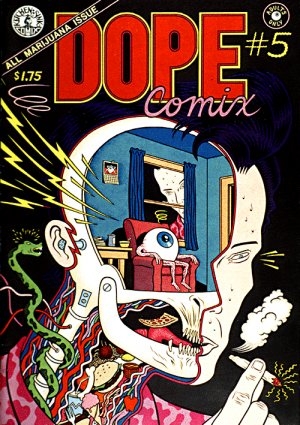
NEW YORK TIMES: Every time Alex Rodriguez defaulted Tuesday to saying he was stupid, naïve or ignorant for taking steroids, I thought of Dean Wormer’s words to the flunking frat boy Flounder in “Animal House:” “Fat, drunk and stupid is no way to go through life, son.” And pleading youthful amateurishness to actions taken at 25, 26 and 27 is no way to go through baseball, either, if you’re injecting yourself, or your cousin is injecting you, with  boli, believed to be the street name in the Dominican Republic for Primobolan.
boli, believed to be the street name in the Dominican Republic for Primobolan.
“He kept using the excuse of naïveté and curiosity and being young, and I believe that to an extent,” Barry Larkin, the former Reds shortstop and now an MLB Network analyst, said after Rodriguez’s news conference. “But that’s not answering the question.” Rodriguez is as awkward off the field as he is fluid between the lines, which undermined his underwhelming 38-minute performance at Steinbrenner Field in Tampa, Fla. His 38-second pause before he thanked his Yankees teammates felt scripted; his explanations about his use of boli were incomplete and contradictory, and he did not appear to comprehend that his responses, when taken as a whole, lacked authenticity. MORE
BREAKING: President Sends 17,000 U.S. Service Jobs Overseas, To Afghanistan
 NEWSWEEK: President Obama has decided to send an additional 17,000 U.S. troops to Afghanistan to help stabilize the situation there in preparation for new elections scheduled for Aug. 20. A senior administration official said that the troops involved in the Afghan surge would include a brigade of Marines and an Army Striker brigade, as well as relevant support forces. Obama’s decision to send the troops is effective Tuesday, said the official, who asked for anonymity when discussing details of the plan. The official said that the president decided to send the new troops in response to a request from the American commander in the country, Gen. David McKiernan. The president agreed to the request in recognition that the security situation in Afghanistan is “deteriorating,” the official said, with Taliban forces rebuilding and the civilian government’s rule becoming increasingly ineffective. One fear on the minds of U.S. officials was that Taliban resistance was only likely to increase as Afghanistan thaws out in the spring, so that the new troop surge would be well timed to prepare for a possible increase in insurgent activity. MORE
NEWSWEEK: President Obama has decided to send an additional 17,000 U.S. troops to Afghanistan to help stabilize the situation there in preparation for new elections scheduled for Aug. 20. A senior administration official said that the troops involved in the Afghan surge would include a brigade of Marines and an Army Striker brigade, as well as relevant support forces. Obama’s decision to send the troops is effective Tuesday, said the official, who asked for anonymity when discussing details of the plan. The official said that the president decided to send the new troops in response to a request from the American commander in the country, Gen. David McKiernan. The president agreed to the request in recognition that the security situation in Afghanistan is “deteriorating,” the official said, with Taliban forces rebuilding and the civilian government’s rule becoming increasingly ineffective. One fear on the minds of U.S. officials was that Taliban resistance was only likely to increase as Afghanistan thaws out in the spring, so that the new troop surge would be well timed to prepare for a possible increase in insurgent activity. MORE
 BBC: Sixty per cent of the Afghan police in the country’s southern province of Helmand use drugs, it is claimed. The estimate, made by a UK official working in the province, was contained in emails obtained by the BBC. International forces are fighting a fierce counter-insurgency campaign against Taleban militants and other insurgents in Helmand. But British officials are clearly worried about the reliability of the Afghan police. “We are very concerned by the levels of drug abuse among the police,” the British Foreign Office said in a statement. “The police are poorly paid, do high risk work and are poorly trained. There are high levels of corruption in the police as well as drug use and supporting counter-narcotics is a key priority for the UK,” it said. “The police are poorly paid, do high risk work and are poorly trained. There are high levels of corruption in the police as well as drug use and supporting counter-narcotics is a key priority for the UK,” it said. The training of the Afghan security forces has been a central plank in the international community’s strategy to help stabilise the country. The unnamed British official, however, wrote in an email to the Foreign Office that drug use was “undermining security sector reform and state-building efforts as well as contributing to corruption.” Helmand province produces almost two-thirds of the world’s opium, which is used to manufacture heroin. The provincial governor, Gulab Mangal, told the BBC that drug use was a “huge problem” amongst police stationed in the province. MORE
BBC: Sixty per cent of the Afghan police in the country’s southern province of Helmand use drugs, it is claimed. The estimate, made by a UK official working in the province, was contained in emails obtained by the BBC. International forces are fighting a fierce counter-insurgency campaign against Taleban militants and other insurgents in Helmand. But British officials are clearly worried about the reliability of the Afghan police. “We are very concerned by the levels of drug abuse among the police,” the British Foreign Office said in a statement. “The police are poorly paid, do high risk work and are poorly trained. There are high levels of corruption in the police as well as drug use and supporting counter-narcotics is a key priority for the UK,” it said. “The police are poorly paid, do high risk work and are poorly trained. There are high levels of corruption in the police as well as drug use and supporting counter-narcotics is a key priority for the UK,” it said. The training of the Afghan security forces has been a central plank in the international community’s strategy to help stabilise the country. The unnamed British official, however, wrote in an email to the Foreign Office that drug use was “undermining security sector reform and state-building efforts as well as contributing to corruption.” Helmand province produces almost two-thirds of the world’s opium, which is used to manufacture heroin. The provincial governor, Gulab Mangal, told the BBC that drug use was a “huge problem” amongst police stationed in the province. MORE
